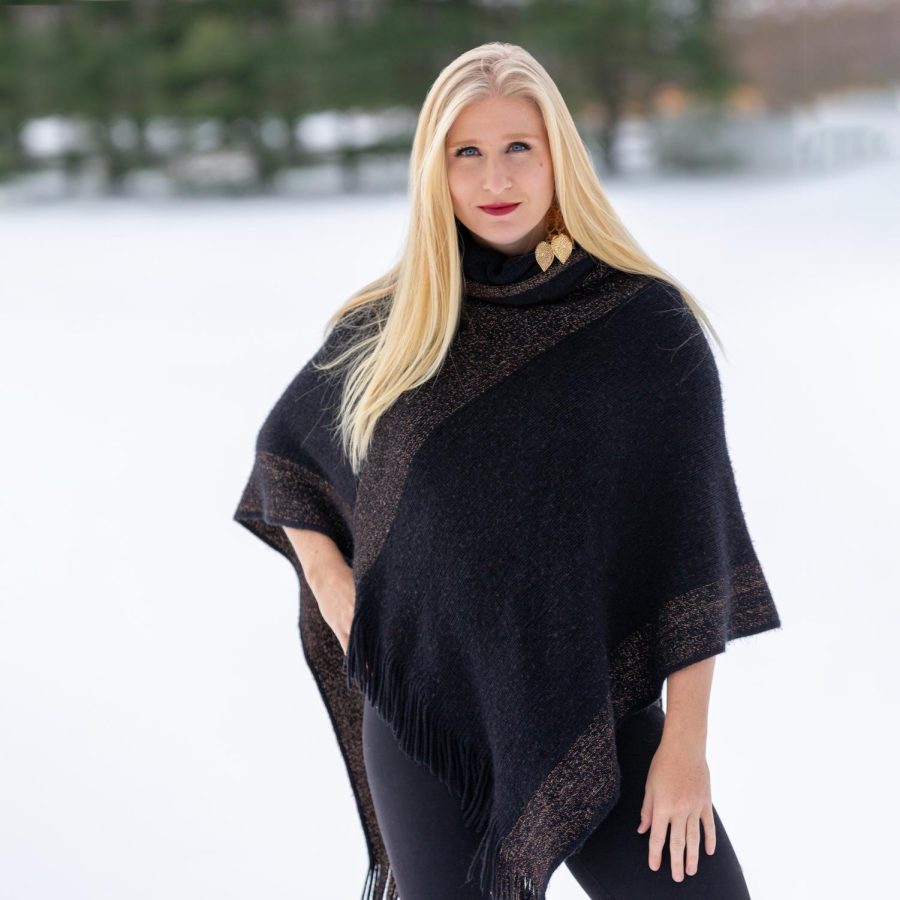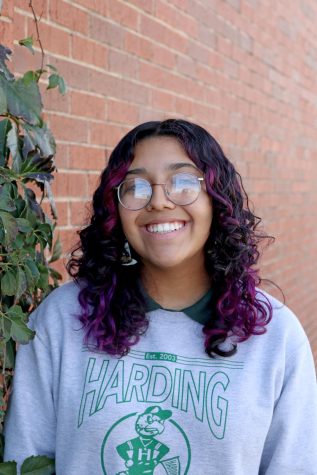My culture isn’t your aesthetic
With ponchos originating in South America, where is the line drawn when someone of a different culture wears the attire?
January 27, 2023
Cultural appropriation has been a source of discussion among minorities in recent years. While more people are beginning to recognize it as an issue, there is still a long way to go in terms of accountability.
The National Conference for Community and Justice defines cultural appropriation as “Taking intellectual property, traditional knowledge, cultural expressions, or artifacts from someone else’s culture without permission.”
There are multiple forms of cultural appropriation, some more obvious than others. The most recognized form is taking stylistic choices of other cultures, like hairstyles or traditional clothing. Whatever form it takes, cultural appropriation has become a hot-button issue.
While all forms are considered offensive, they are not equally recognized. With the recent controversy of influencers using classic Hispanic recipes and renaming them, there has been an uproar within minority communities about cultural appropriation that has gone unrecognized.
Popular Tik-Tokers have faced recent backlash due to making the classic Hispanic recipe of ‘aguas frescas’ and renaming them ‘spa water’ and claiming the recipe as their own. This provoked outrage amongst Hispanics, many of them saying that this is not the first time a situation like this has occurred. Similar situations have come from the terms “Edgar” and “hot Cheeto girl,” which began as a joke that most Hispanics could resonate with. People in Hispanic communities have expressed concern with the joke, saying that they are slowly developing into stereotypes that other cultures mock.
The term “Chola” has also formed a discussion, as the significance of the word is being ignored. Tiktoker Selena Arellano (@urgir1friend) spoke out about the improper usage of the term, saying that “It’s become an issue when people are making this a costume or a style or just simply an outfit for the day.”
“Our culture is taken and romanticized all the time. They want the aesthetic of it but ignore when we speak out about our issues,” said sophomore Nallely DeLeon.
In recent years African Americans have spoken out against the use of African American Vernacular English, or AAVE, by non-African American people. AAVE originated and is most often used in Black communities and goes back many years. Controversy sparked when Gen Z and members of the LGBTQ+ community claimed that popular AAVE terms originated from their communities or the speech was a new concept. People soon spoke out to correct these claims, expressing that these terms were rooted in Black culture.
“It’s hard to put myself into a bubble when it comes to culture. African American culture ranges from different things like music, clothing, how we speak, and so much more,” said sophomore Natalie Thompson.
One of the most difficult parts about the discussion of cultural appropriation is where is the line drawn between appropriation and appreciation. Greenheart defined cultural appreciation as “when someone seeks to understand and learn about another culture in an effort to broaden their perspective and connect with others cross-culturally.” There is a level of respect and desire to be educated that comes with cultural appreciation that appropriation lacks.
“Just seeing a part of someone’s culture and saying I want to do that but not educating yourself on it or dumbing it down and making it seem less significant is what I believe differentiates the two,” Thompson said.
Media portrayal plays a large factor in how a culture is perceived. In recent years communities have spoken out about misrepresentation and negative connotations that media tends to put out when discussing different cultures. This can lead to stereotyping and wrongful assumptions about a culture.
“There are a lot of things that go into a culture that make it unique. Media can sometimes make those things seem less important than they are,” DeLeon said.
The best way to stand against cultural appropriation is to use your voice. Using your platform, no matter how small, can make a significant difference. Standing in solidarity with marginalized cultures apart from your own and speaking out with them can help bring recognition to the harms of appropriation.
“Even though I’m not an influencer I still have a platform in the things I’m involved in,” Thompson said. “My voice can still have an impact on people.”


